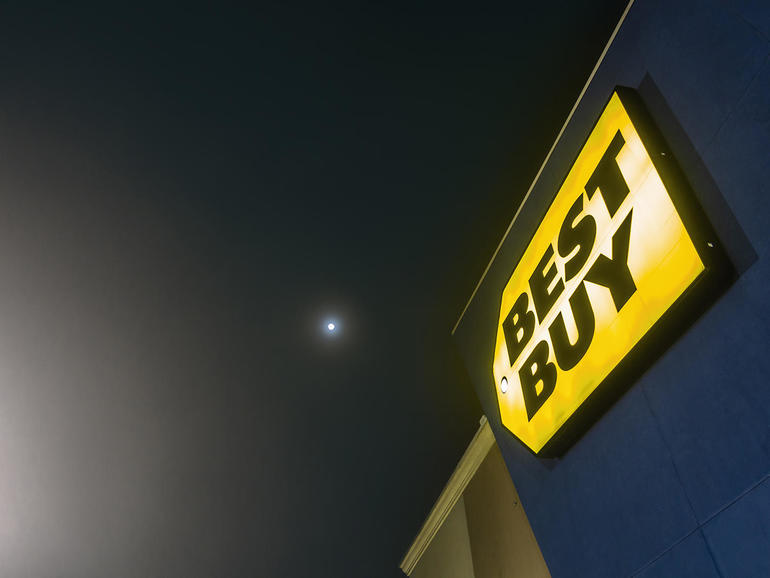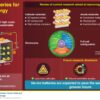An “extraordinarily high” demand for consumer electronics fueled strong first quarter results for Best Buy, which saw its revenue jump 36% as shoppers continue on a tech spending spree that began at the height of the pandemic.
Best Buy reported net income of $595 million, or $2.32 per share. Adjusted EPS was $2.23 on revenue of $11.6 billion, up from $8.56 billion a year ago. Analysts were expecting earnings of $1.37 per share on revenue $10.34 billion.
The electronics retail giant said domestic comparable sales increased 38%, with the largest drivers in terms of merchandise being home theater equipment, computing devices and appliances. Best Buy’s online sales contributed 33.2% of domestic revenue as higher than average order values and increased traffic continues even as more consumers shop in-store.
CEO Corie Barry said Best Buy’s sales have benefitted from the continued consumer focus on the home, with shoppers buying up technology products for remote work and education as well as cooking, entertainment and remodeling.
“It has become evident throughout the pandemic that technology is even more important to people’s lives, and we are excited about what that means for our business going forward, especially in combination with both the heightened technology innovation that supports the more home-based way of work and life and our unique ability to inspire and support our customers,” Barry said.
Last quarter, Barry said there was “a high level of uncertainty” about whether strong demand will persist throughout 2021. Best Buy benefited from initial remote work and education trends as well as the need for upgrades for Wi-Fi routers, PCs, and home office equipment. But the retailer’s outlook hinges somewhat on vaccination outcomes and how customer demand and shopping patterns emerge post-pandemic.
Best Buy CFO Matt Bilunas said the unexpectedly strong start to the year justifies the company’s decision to raise its annual comparable sales growth outlook. Nonetheless, Bilunas said the back half of the year could see spending trends shift as consumers do more traveling, eat out and attend events.
“It is difficult to know exactly how that impacts our business, especially as we lap particularly strong sales in the back half of last year,” he said. “Therefore, at this time, we are leaving our original FY22 back-half sales assumptions unchanged.”



